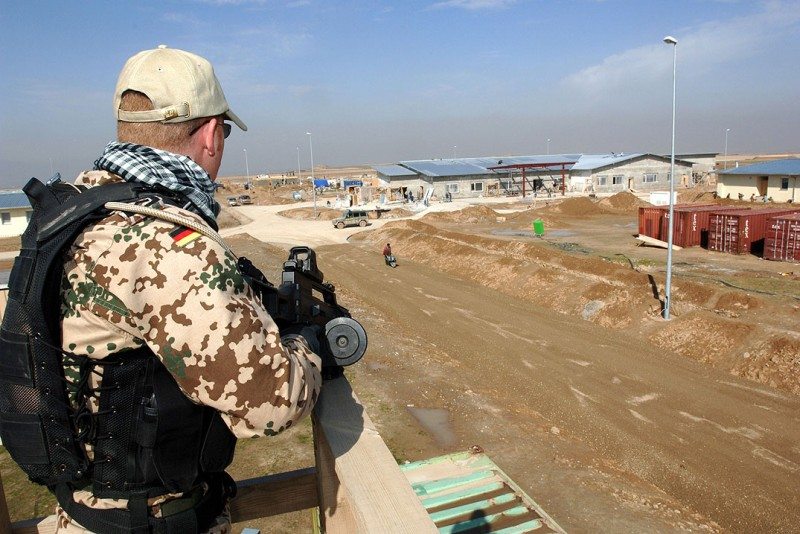The German Defense Ministry has released a new plan outlining the country’s future defense and security policies. A paradigm shift is in the works.
“Germany is ready to lead,” German Defense Minister Ursula von der Leyen said as she presented the so-called “white paper” on security policy approved by the cabinet earlier on Wednesday.
The last White Paper goes back to 2006, when Russia was a partner, Syria and Libya weren’t fighting civil wars, there was no “Islamic State,” no open conflict in Ukraine and no refugee crisis. The world today faces crises in a density and concurrency never seen before, von der Leyen said.
Today, as Europe is grappling with the shock of the Brexit referendum and warily eyeing Russia, Germany’s security policy paper sees the country gradually assuming a larger defense role within the frameworks of NATO and the European Union. It also envisions a future defense union of European states.
“Germany is increasingly seen as a key player in Europe,” the document noted. According to the paper, which states that Germany is ready to “assume responsibility” and “help meet current and future security and humanitarian challenges,” the country has a responsibility to actively help shape the world order.
Paradigm shift
The 2016 White Paper marks a major shift for the country.
For decades, post-World War Two Germany was cast in the role of economic giant, but “political dwarf” that long refrained from sending troops abroad in international conflicts. It was not until 1994 that Germany’s highest court allowed the country to take part in multinational peacekeeping missions.
The world expects Germany to take on a greater foreign and security policy role, and that demands “a turnaround,” the German defense minister said.
Germany now deploys troops to conflict zones, from the Balkans to Afghanistan and Mali, but kept out of the NATO intervention in Libya. In a non-combat role, Germany is part of the international alliance against the Islamic State group.
The Bundeswehr, seen domestically as overstretched, underfunded and beset by equipment failures, is now set to see its budget boosted and will implement its first increase in troop strength since it was a conscript army in the Cold War. Plans call for recruiting nearly 20,000 additional personnel over seven years.
Pulling its weight
The Defense Ministry’s plan stressed that Germany will act within transatlantic and European frameworks. Two years, President Joachim Gauck and von der Leyen both made a case for more German engagement abroad.
The opposition and members of Chancellor Angela Merkel’s coalition partner, the Social Democrats (SPD), criticized key points of the new plan.
No one is pushing for more international deployments, SPD parliamentary defense spokesman Rainer Arnold told DW, adding that the Bundeswehr can’t accomplish much more in its current state. Germany, which is respected as a reliable partner, must focus its efforts more clearly, in particular when it comes to missions for the UN, he said.
“We can’t allow ourselves to get bogged down,” he added.
Armaments and war
The paper is not honest where funding is concerned, Arnold warned. He added that the plan pretends everything can be financed, and NATO defense spending goals of 2 percent of GDP can be reached. “That’s an illusion,” he said.
The defense and security policy plan says German reaching the NATO funding goal is within the country’s grasp, although it would require the amount Berlin spends on the defense from about 36 billion euros ($39.8 billion) to 60 billion euros.
The opposition’s criticism of the Defense Ministry’s plan was blunter.
“The ‘white paper’ is nothing but a written demand for more money for more soldiers, for more military operations and more military equipment,” Germany’s Left Party said in a statement. “It’s a ‘white paper’ for armaments and war.”










